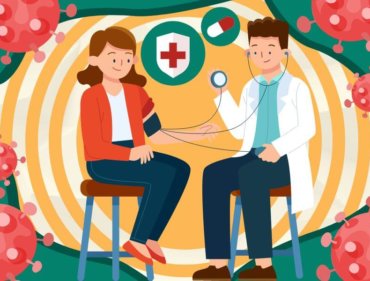Sleep apnea is a sleep disorder that happens when a person’s breathing is interrupted during sleep. If left untreated, it will lead to episodes of sudden stopping and starting of breathing during sleep. It can happen hundreds of times during the night.
Sleep apnea can also cause several health problems such as hypertension, heart disease, diabetes, heart attack, and stroke. Untreated sleep apnea can also affect your daytime productivity and causes work-related accidents.
What are the Types of Sleep Apnea?
Obstructive sleep apnea. It is a common type of sleep apnea that occurs as repetitive episodes of complete or partial upper airway blockage during sleep. Breathing resumes with a loud gasp or body jerk. These episodes can interfere with your sleep and reduce the flow of oxygen to vital organs.
Central sleep apnea. The airway is not blocked but the brain fails to signal the muscle to breathe due to instability in the respiratory control center. Central sleep apnea is related to the function of the central nervous system.
Complex sleep apnea. It is a distinct form of sleep-disordered breathing. Complex sleep apnea is repeated central sleep apnea that persists or emerges when obstructive events are extinguished with positive airway pressure.
What are the Symptoms of Sleep Apnea?

- Loud snoring
- Gasping for air during sleep
- Awakening with a dry mouth
- Morning headache
- Insomnia
- episodes of trouble breathing during sleep
- Excessive daytime sleepiness
- Mood changes and irritability
- Difficulty in focusing while awake
- Obesity or excessive weight gain
Sleep apnea links to obesity
Sleep apnea is a common disorder whose prevalence is linked to obesity. It cab increase pharyngeal collapsibility through a mechanical effect on pharyngeal soft tissues and lung volume. Obesity is an excessive weight gain that triggers weight-related diseases. Abnormal fat accumulation can affect several parts of the body. A body mass index over 30 is considered obese.
How does Sleep Apnea Causes Weight Gain and Obesity?
Sleep apnea or lack of sleep causes daytime drowsiness. It is a vicious cycle that can sabotage your waistline and your health. Lack of sleep can also slow down our metabolic rate and increase daytime cravings. Losing weight is challenging and keeping weight off can be difficult. That is why you will need a proper weight loss regimen that does not sabotage your overall health.
Dealing with Sleep Apnea-related Obesity through the HCG diet
The HCG diet is a healthy weight loss regimen with a combination approach of HCG shots and low-calorie intake. The HCG helps in suppressing your appetite and increasing your energy levels during the low-calorie phase. As a result, it can curb hunger and burn excess fat.
The burned fats will be converted into energy that promotes biological activities in the body instead of pulling energy from the foods you eat. Weight loss can also improve other conditions in the body including obstructive sleep apnea. It also reduces your risk of several chronic diseases.






















